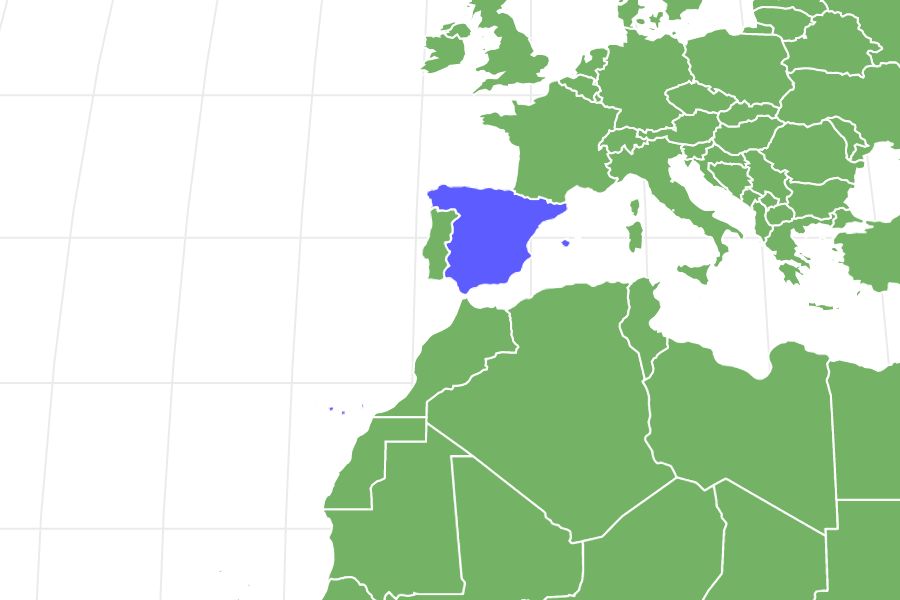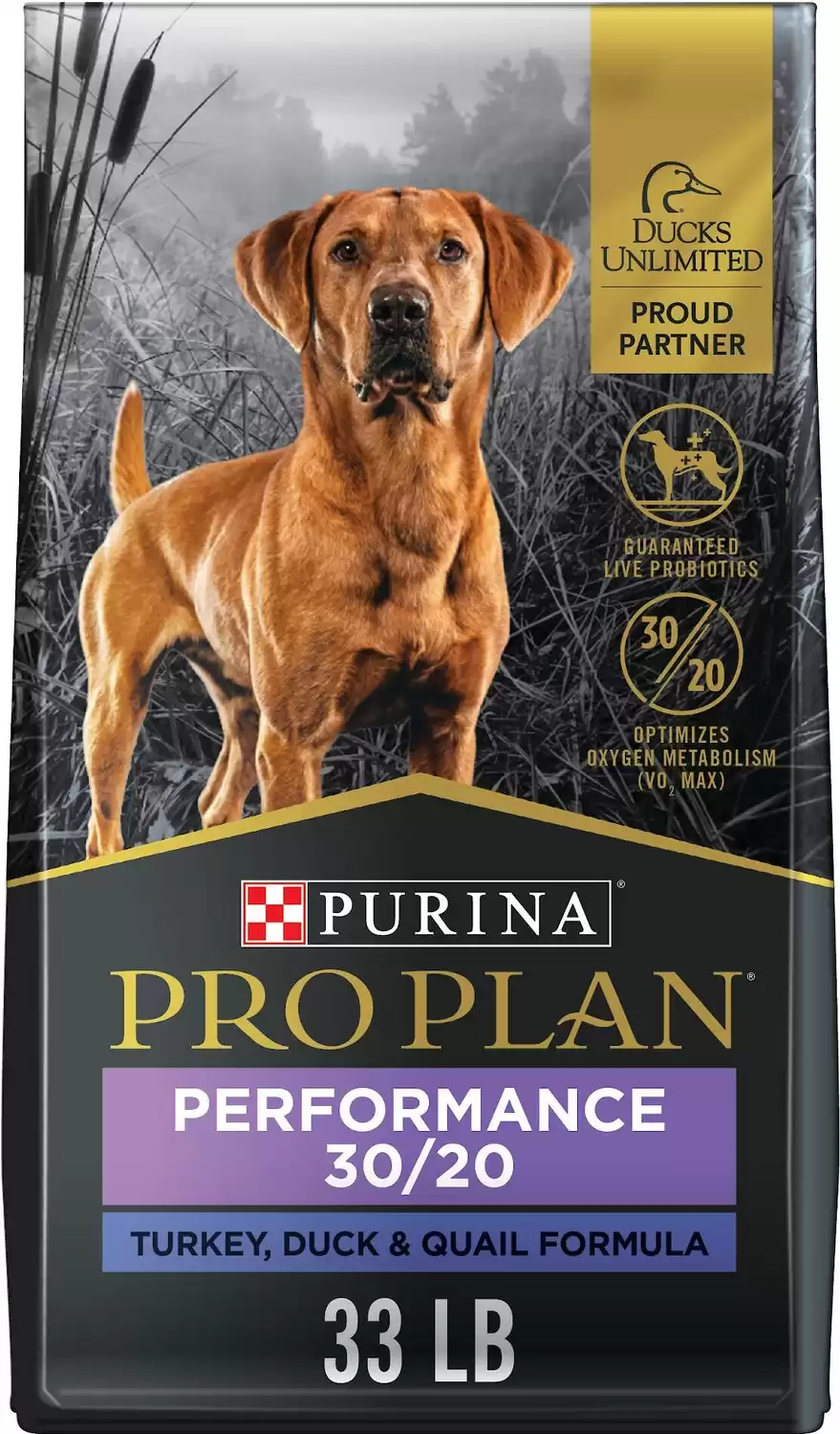Ibizan Hound
Canis lupus
The first two Ibizan Hounds brought to the United States were called Hannibal and Certera, owned by Colonel and Mrs. Consuelo Seoane.
Advertisement
Ibizan Hound Scientific Classification
- Kingdom
- Animalia
- Phylum
- Chordata
- Class
- Mammalia
- Order
- Carnivora
- Family
- Canidae
- Genus
- Canis
- Scientific Name
- Canis lupus
Read our Complete Guide to Classification of Animals.
Ibizan Hound Conservation Status
Ibizan Hound Facts
- Fun Fact
- The first two Ibizan Hounds brought to the United States were called Hannibal and Certera, owned by Colonel and Mrs. Consuelo Seoane.
- Diet
- Omnivore
- Common Name
- Ibizan Hound
Ibizan Hound as a Pet:
- General Health
- Energy Level
- Shedability
- Trainability
- Intelligence
- Tendency to Chew
- Size
- Family and kid friendliness
- Yappiness / Barking
- Moderate
- Separation Anxiety
- Moderate
- Preferred Temperature
- Warm climate
- Exercise Needs
- High
- Friendly With Other Dogs
- Moderate
- Pure bred cost to own
- $1,500 to $2,000
- Dog group
- Sporting
- Male weight
- 45-50 lbs
- Female weight
- 40-45 lbs
This post may contain affiliate links to our partners like Chewy, Amazon, and others. Purchasing through these helps us further the A-Z Animals mission to educate about the world's species.
View all of the Ibizan Hound images!
An Ibizan Hound is a hound dog that originated from the Balearic Islands off the Mediterranean Coast. They were initially used to help hunt rabbits about 3,000 years ago by Phoenician traders.
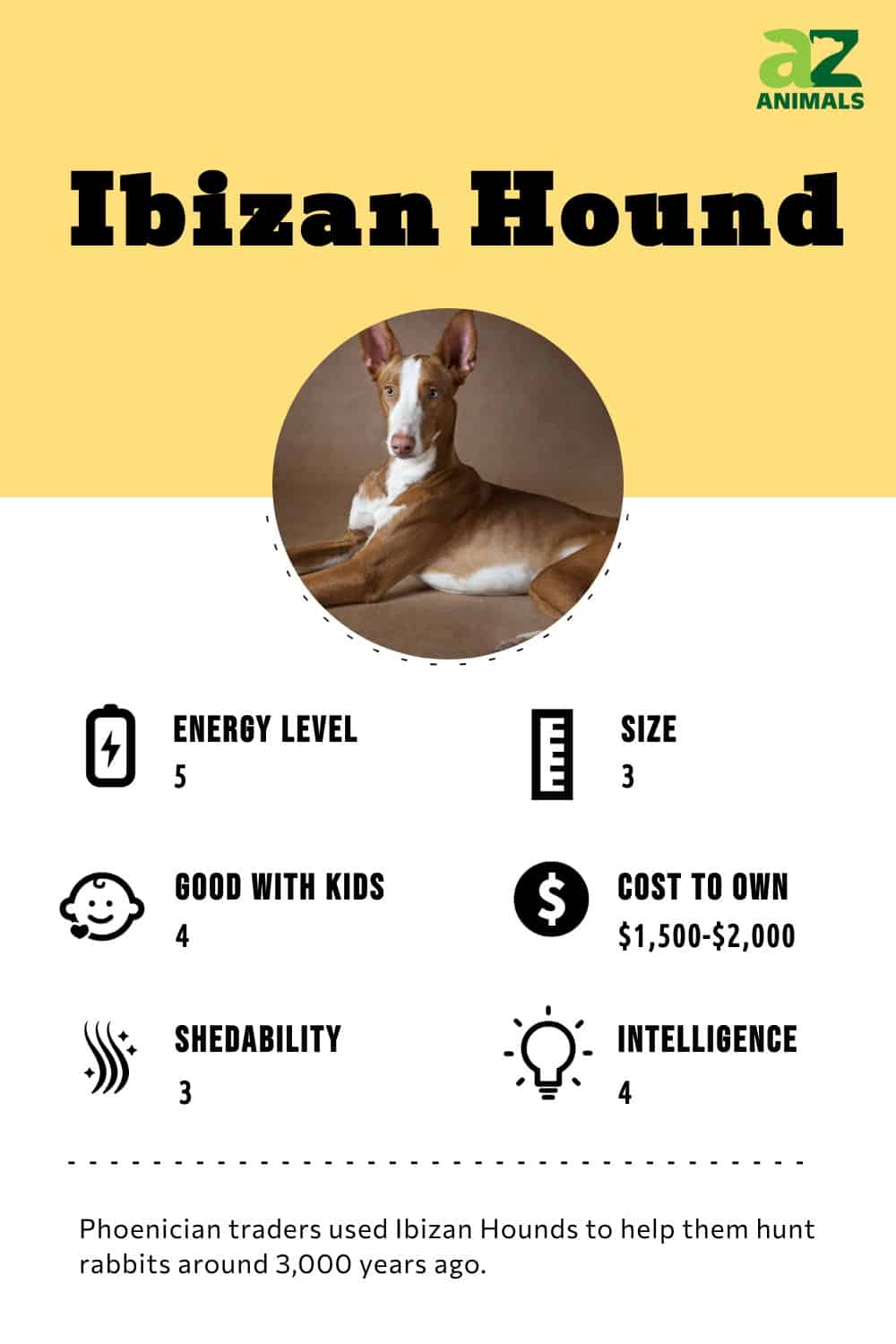
The Phoenician traders brought hounds to the island from Egypt to assist with catching food. Ibizans can make an exceptional family pet. They are friendly, silly, and family-oriented.
See all of our expert product reviews.
Ibizans may be wire-haired or smooth-haired. Some believe there to be a longhaired type but this is most likely a variant of the wirehaired. Wirehaired Ibizans are less common than their smooth-haired counterparts. The coat of an Ibizan is red and white with light tan noses, ears, rims around the eyes, and pads on the feed. The breed has a very athletic-looking build and easily recognizable upright ears. They have long necks and long and narrower heads.
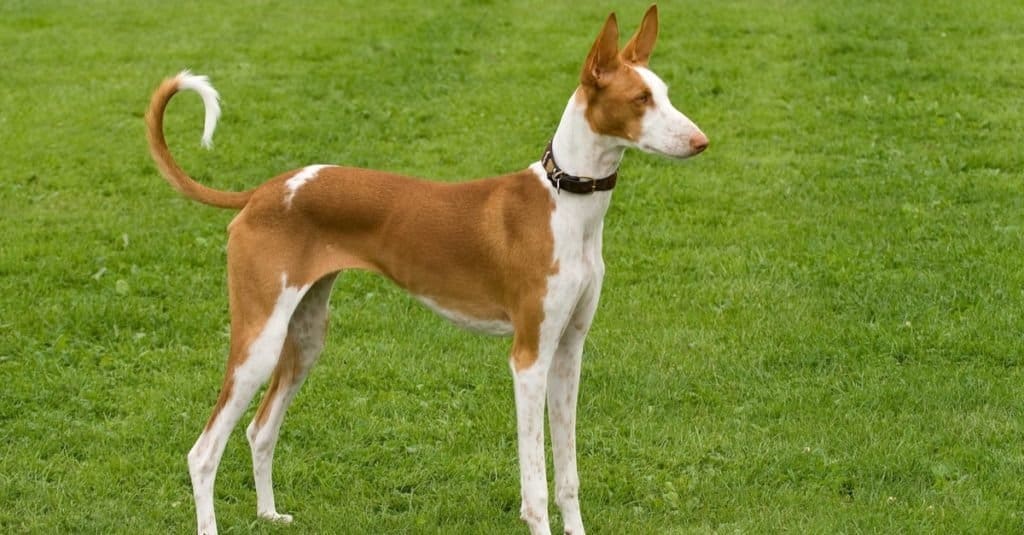
The Ibizan Hound has an athletic-looking build and is easily recognizable due to its upright ears.
©Sally Wallis/Shutterstock.com
Owning an Ibizan Hound: 3 Pros and Cons
| Pros! | Cons! |
|---|---|
| Great family dog: Ibizans make a great family dog. They are gentle, playful, and silly. | High-energy: Ibizans have a lot of energy and need lots of vigorous exercise each day. |
| Easy to groom: An Ibizan’s coat is easy to groom and will only need to be brushed about once a week. | Escape artists: Ibizans have been known to jump over fences or gates, so you’ll need to make sure your dog is properly secured and safe in your space. |
| Good with dogs: Ibizans are generally good with other dog breeds. | High prey drive: Ibizans have a high prey drive and may try to chase smaller animals. They are not a good choice for homes with cats. |
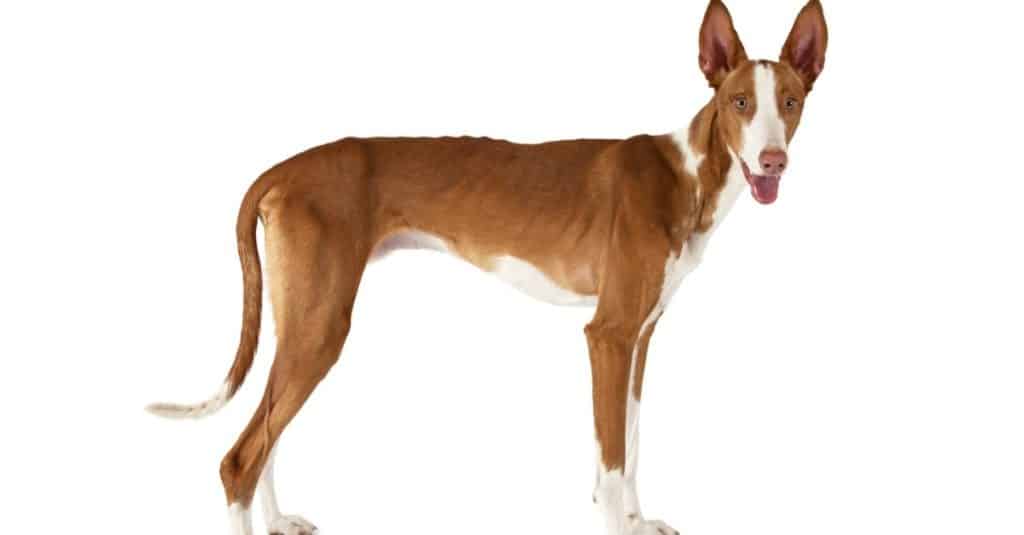
Ibizans make great family dogs as they have a gentle, playful, and silly temperament.
©Kuznetsov Alexey/Shutterstock.com
Health and Entertainment for your Ibizan Hound
- The Best Wet Food for Senior Dogs
- The Best Dog Food for Labrador Retrievers (Senior, Puppy, and Adult)
- These Are the Best Probiotics for Dogs (They Actually Work)
- Victor Senior Healthy Weight Dog Food Review: Recalls, Pros, Cons, and More
- The Best Dog Food for Small Dogs (Puppy, Adult, Senior): Ranked and Reviewed
See all of our expert product reviews.
History and Evolution
Due to the Ibizan Hound’s strong resemblance, particularly seen in their upright ears and long, narrow face shape, to the ancient Egyptian depictions of Anubis, who was the god of funerary rites and the underworld, it was believed that this breed’s lineage could be traced back thousands of years.
However, DNA analysis of 85 breeds including the Ibizan Hound conducted by scientists at the Fred Hutchinson Cancer Research Center in Seattle and reported in 2004 has shown that the Ibizan and related Pharaoh Hound are not ancient breeds but instead more modern re-creations likely produced by breeders.
The Ibizan Hound takes its name from the Spanish island where it’s thought Phoenician traders brought the breed in the 8th or 9th century B.C. Due to the breed’s agility and very strong prey drive, people in the Catalan-speaking region of Spain and in France traditionally used these dogs to hunt small game including rabbits. Ibizan Hounds are able to hunt in all types of environments and work by scent, sound, and sight. Females are thought to be superior hunters and often are grouped in a pack by hunters. These days, Ibizan Hounds are often used in competitive lure coursing and agility events due to their ability to jump high and far.
The first Ibizan Hounds to come to the United States were Hannibal and Certera, brought to Rhode Island by Colonel and Mrs. Consuelo Seoane in 1956. Their litter of eight puppies combined with other imports was the foundation of the breed in the U.S., which was recognized by the American Kennel Club in 1979.
Size and Weight
The Ibizan Hound is a large-breed dog. Males weigh about 50 pounds and are between 23.5 and 27.5 inches tall. Females generally weigh around 45 pounds and are between 22.5 and 26 inches tall.
| Height (Male) | 23.5 inches to 27.5 inches |
| Height (Female) | 22.5 inches to 26 inches |
| Weight (Male) | 50 pounds |
| Weight (Female) | 45 pounds |
Common Health Issues
Learning about some of the common health issues Ibizans face is important if you are looking to bring one of these dogs home to your family. Not all Ibizans will suffer from all, or any, of these conditions, but when you know what to look for, it can help you catch a potential problem early before it evolves into a bigger problem.
Some Ibizans may develop autoimmune thyroiditis, which can lead to hypothyroidism. Most dogs that are going to develop this problem will do so between the ages of 2 and 5. Hypothyroidism can cause a dog to be very lethargic and weak, gain weight, become intolerant of the cold, and develop a dull and dry coat.
Ibizans may also develop hip dysplasia, which is a genetic condition. Hip dysplasia occurs when a dog’s joints don’t form properly and the bones begin to rub against one another. This can be very painful and may require surgery.
You should also be on the lookout for signs of bloat in your dog. Bloat is when a dog’s stomach becomes enlarged and filled with air, food, or fluid. The stomach twists and the dog is unable to relieve any gas. It can cause them to have trouble breathing. If you suspect your dog has bloat, formally known as gastric dilation-volvulus, seek medical attention right away as this is a life-threatening problem.
In summary, some of the potential health concerns faced by Ibizans include:
- Autoimmune thyroiditis and hypothyroidism
- Hip dysplasia
- Bloat
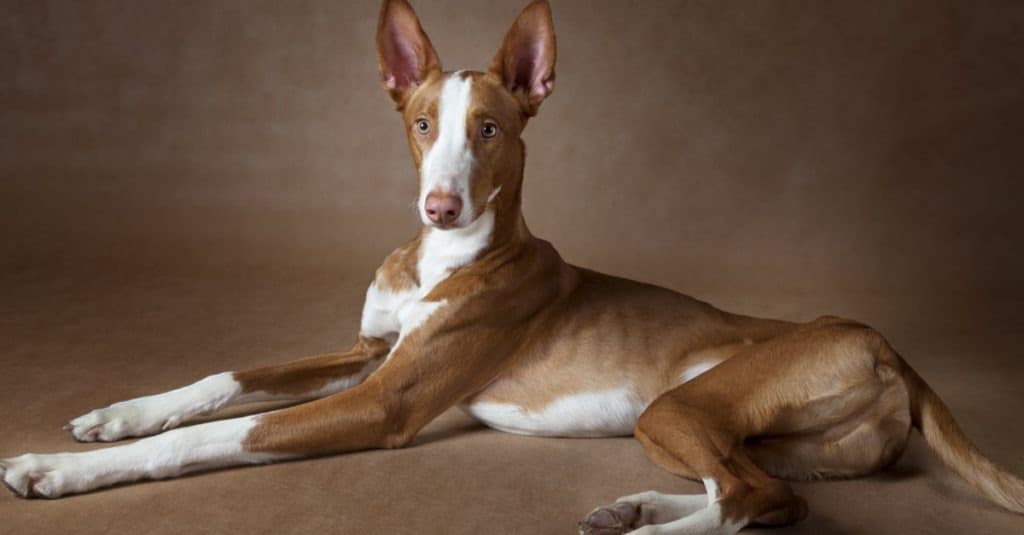
The Ibizan Hound can suffer from several health issues, including bloat and hip dysplasia.
©Kuznetsov Alexey/Shutterstock.com
Temperament and Behavior
Ibizan Hounds have a very even-tempered personality. They are very family-oriented and enjoy spending time with and entertaining the people in their families. This breed is very intelligent and is good at solving problems.
Overall Ibizan Hounds respond well to positive training methods, but they have a bit of a personality mix and can exhibit stubborn or independent traits and behaviors as well. Ibizan Hounds are a very active breed and require regular exercise. However, they can also be good house pets, as long as their activity needs are met. The prey drive for an Ibizan Hound is very high, so it is always important to keep him on a leash when you go for a walk and make sure your backyard has a high and secure fence.
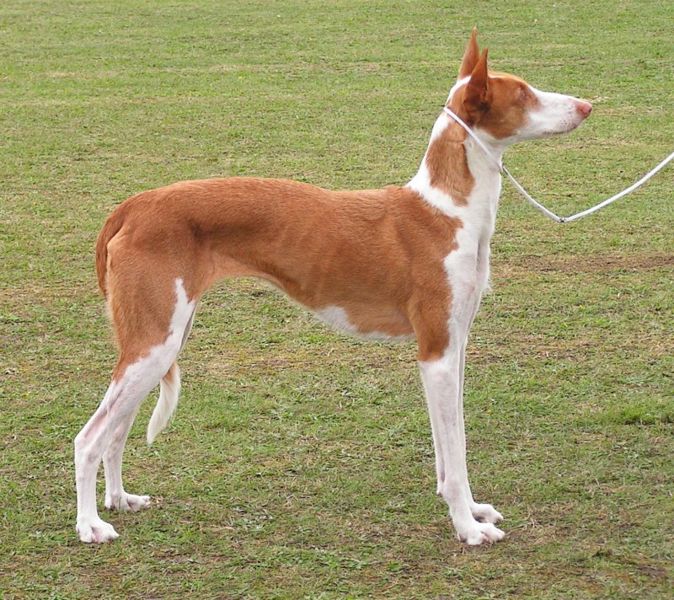
Ibizan Hounds have a high prey drive so it’s vital to keep these dogs on a leash when walking.
©Jan Eduard at the German language Wikipedia / Creative Commons
How to Take Care of an Ibizan Hound
Keep reading to learn more about caring for your Ibizan. It is important to keep this breed’s dietary needs, exercise requirements, temperament, health issues, and more in mind as you decide what is best for your dog.
The Best Dog Food for Ibizan Hounds
Most Ibizans will need between 2 and 3 cups of high-quality dog food from a respected manufacturer. The exact amount that is right for each dog will vary based on their activity level, age, weight, metabolism, health concern, and other factors. An Ibizan should eat twice a day, so split the recommended amount of food into two daily servings.
Some owners feed their Ibizan kibble, others choose a raw or homecooked diet, and still, others choose some mix of the three. The choice is up to you, but you can contact your vet if you’re looking for guidance or suggestions. Monitor the timing and portions of their food to reduce the chances of life-threatening bloat.
Ibizan puppies should be fed a high-quality puppy formula. Your dog’s vet will also be a good resource if you’re not sure which type of food is best for them. Keep in mind that young puppies have small stomachs, so they won’t be able to eat as much food at one time. For this reason, you’ll need to split their food into three or four servings throughout the day. Once a puppy is six months, just two servings of food should be sufficient each day.
Our choice at A-Z Animals of the best dog food for Ibizan Hounds is Purina Pro Plan Sport Performance 30/20 Salmon & Cod Formula Dry Dog Food.
We like how this natural fish recipe provides glucosamine, Omega-3 fatty acids, and EPA for pain-free, mobile joints. Also, the expert balance of fat and protein fuels the Ibizan Hound’s endless energy to build muscle, regulate blood sugar, and keep weight under control. This food takes care of their belly too, with live probiotics that promote health and immunity starting with the digestive system.
You can purchase Purina Pro Plan Sport Performance 30/20 Dog Food on Chewy or Amazon.
- Dry kibble with turkey, duck, and quail protein
- Promotes bone and brain health
- 30% protein and 20% fat for healthy metabolism and lean muscle
- Contains glucosamine and EPA for healthy joints and mobility
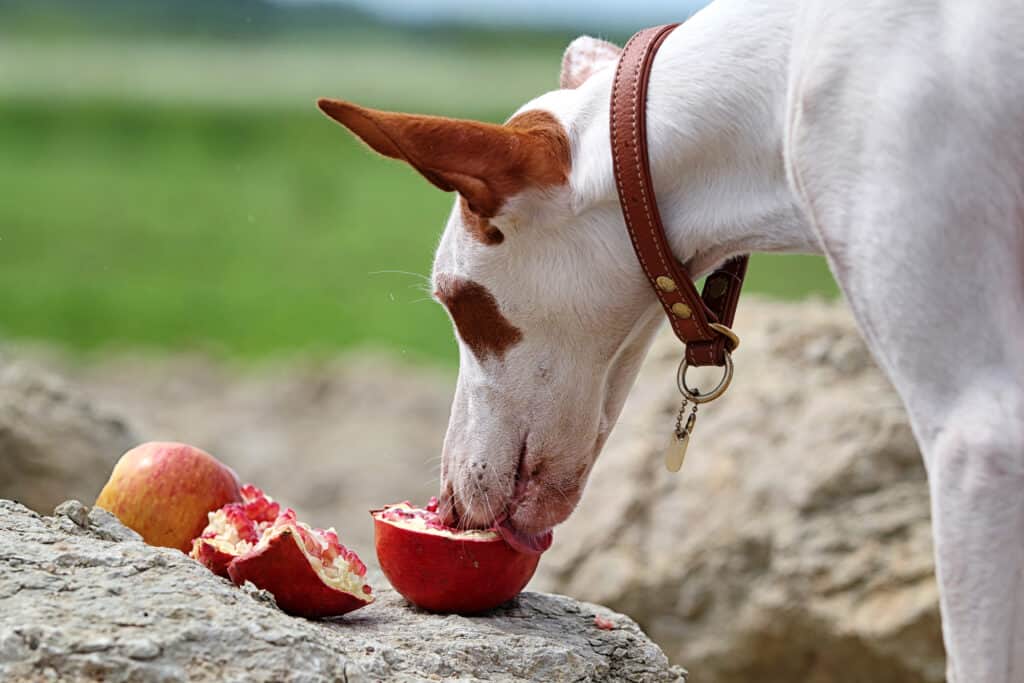
An Ibizan should eat twice a day, and be monitored to reduce the life-threatening chances of bloat.
©DragoNika/Shutterstock.com
Maintenance and Grooming
Ibizans may have a wire-haired or straight-haired coat. You’ll want to brush and bathe your Ibizan periodically when it looks or smells like they need it. This goes for both wire-haired and short-haired dogs.
In addition to brushing and bathing your Ibizan, they’ll also need to have their teeth brushed regularly and their nails clipped to prevent them from getting too long and painful to walk on.
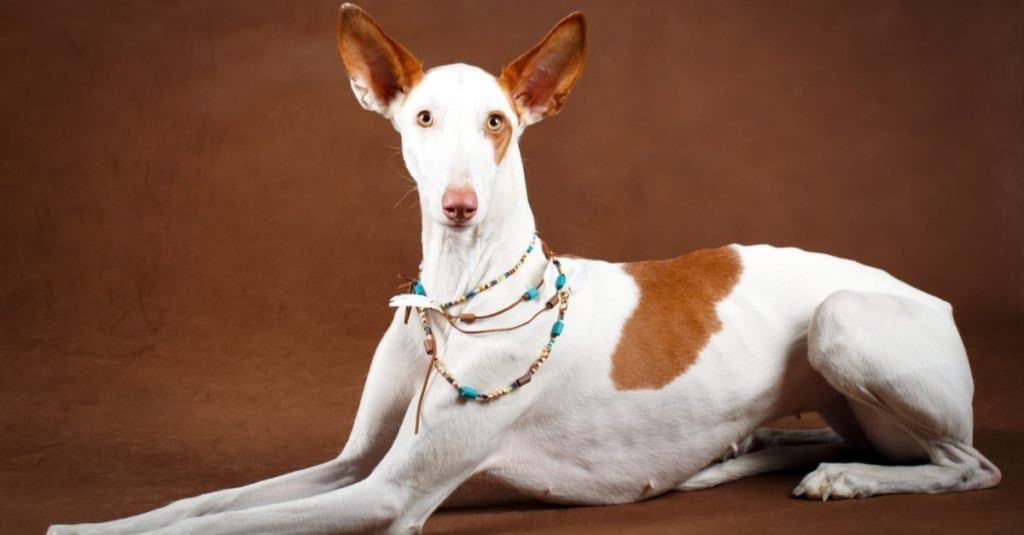
Ibizan Hounds have either a wire-haired or straight-haired coat that needs periodic grooming.
©DragoNika/Shutterstock.com
Training
Positive reinforcement training methods work best for Ibizans. Keep your training sessions shorter and interesting to keep your dog’s attention. While the breed is quite intelligent, they also get bored very easily. You should also crate train your Ibizan since housetraining can be a challenge with the breed.
Exercise
Ibizans need a lot of physical activity; they are a very athletic breed. They have been known to jump up to five or six feet into the air, so you’ll also want to ensure you have a fenced-in backyard. Each day, your dog will need to take a few long walks and/or engage in a game with you or another member of the family in the backyard.
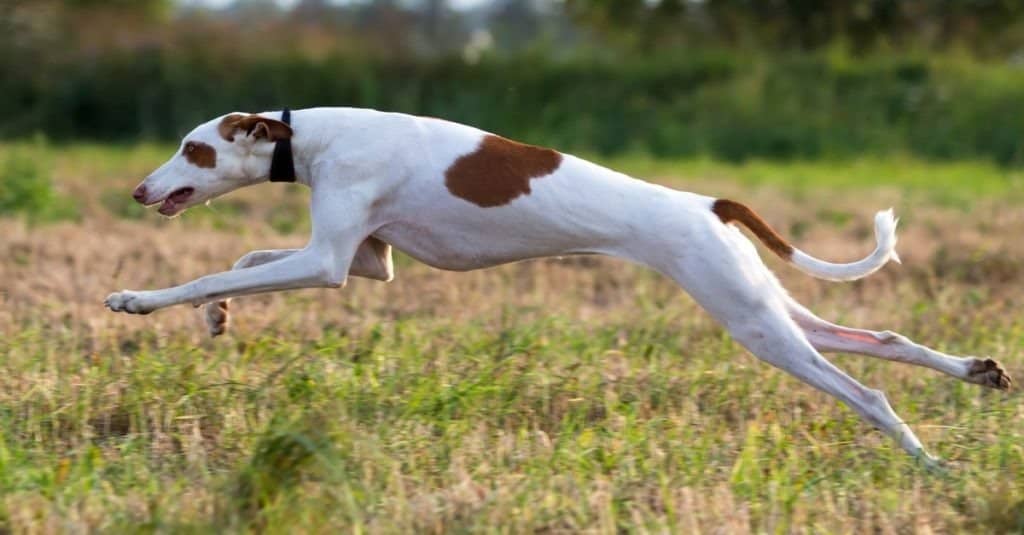
Ibizan Hounds require a lot of vigorous exercise every day.
©DragoNika/Shutterstock.com
Ibizan Hound Puppies
Once you bring an Ibizan puppy home, you’ll want to start the process of socialization as soon as possible. This will help them get used to lots of different people, pets, and places and can help them adjust to different situations in the future. You will also want to begin potty training and training your new dog to get them used to your routines and expectations.
Before purchasing a puppy from a breeder, ask for health clearances for the parents to help decrease the chances that your dog will inherit a genetic condition such as hip or elbow dysplasia, von Willebrand’s disease, hypothyroidism, or eye diseases.
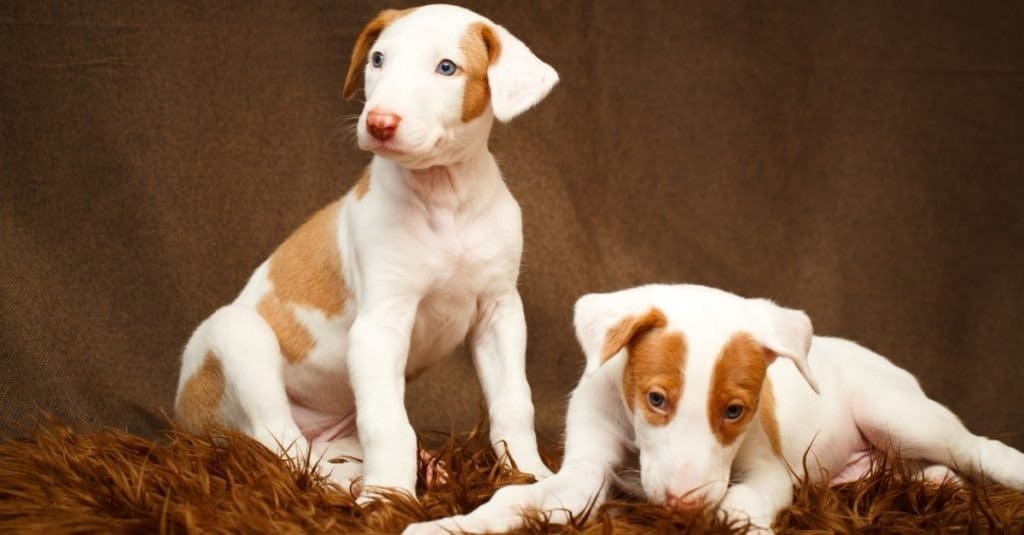
It’s best to start the process of socialization as soon as possible after you bring an Ibizan puppy home.
©DragoNika/Shutterstock.com
Ibizan Hound and Children
Ibizan Hounds do very well around children. They can be very silly and playful with children, but also know how to be gentle and loving. They may chase younger children, so this breed may do best in homes with slightly older children who have learned appropriate ways to interact with a dog.
Dogs Similar to Ibizan Hounds
Basenjis, Greyhounds, and Whippets are three breeds that are similar to an Ibizan.
- Basenji: Basenjis and Ibizans are both hunting dogs who are a mix of playful and easy to train. Ibizans are larger dogs. The average weight of a male Ibizan is 48.5 pounds, while the average weight of a male Basenji is 24 pounds.
- Greyhound: Greyhounds and Ibizans are both very affectionate dogs who can make excellent family pets. Ibizans have a lot more energy and a greater exercise need than Greyhounds.
- Whippet: Whippets are another hunting dog, like the Ibizan. Both dogs have a high prey drive and will be likely to chase small animals they see. Ibizans are more affectionate and also more likely to bark than Whippets.
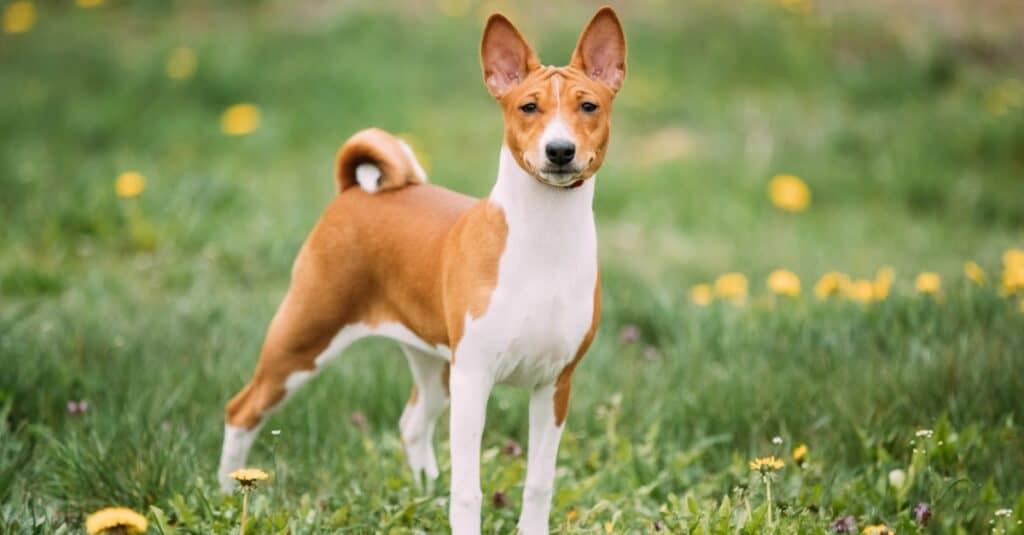
The Basenji is a similar breed to the Ibizan Hound but is smaller in size.
©Grisha Bruev/Shutterstock.com
Popular Names for the Ibizan Hound
We’ve compiled some of the most popular names for Ibizans. Read through the list below to see if one seems like a good choice for your dog:
- Oliver
- Rocky
- Buddy
- Lucky
- Baxter
- Daisy
- Sadie
- Ruby
- Gracie
- Lexi
Ibizan Hound FAQs (Frequently Asked Questions)
Are Ibizan Hounds herbivores, carnivores, or omnivores?
Ibizan Hounds are omnivores, meaning they eat both plants and other animals.
What Kingdom do Ibizan Hounds belong to?
Ibizan Hounds belong to the Kingdom Animalia.
What class do Ibizan Hounds belong to?
Ibizan Hounds belong to the class Mammalia.
What phylum to Ibizan Hounds belong to?
Ibizan Hounds belong to the phylum Chordata.
What family do Ibizan Hounds belong to?
Ibizan Hounds belong to the family Canidae.
What order do Ibizan Hounds belong to?
Ibizan Hounds belong to the order Carnivora.
What type of covering do Ibizan Hounds have?
Ibizan Hounds are covered in hair.
What genus do Ibizan Hounds belong to?
Ibizan Hounds belong to the genus Canis.
What is an interesting fact about Ibizan Hounds?
Ibizan Hounds are intelligent, active, and engaging by nature!
What is the scientific name for the Ibizan Hound?
The scientific name for the Ibizan Hound is Canis lupus.
How long does Ibizan Hound live?
The life expectancy of an Ibizan is between 11 and 14 years.
How much does an Ibizan Hound cost to own?
Breeders typically price Ibizans for between $1,500 and $2,000. Before purchasing an Ibizan, talk with different breeders and choose a trusted and reputable one that will be honest about the Ibizan’s bloodline. In addition to purchasing an Ibizan from breeders, you may also be able to find one at a rescue shelter to adopt. The price to adopt from a rescue organization should be lower. Expect to spend a couple of hundred dollars to cover application fees and vaccinations.
Whether you purchase your Ibizan from a rescue group or a breeder, you’ll also need to think about all the other expenses that go along with owning a dog. Your dog will need food, supplies, veterinary care, training, and more. The first year you own the dog, you should expect the price for all of these expenses to be between $1,000 and $1,500. The following years should be less expensive but still could cost between $500 and $1,000.
Is an Ibizan Hound good with kids?
Yes, Ibizans are good with kids. They can be gentle, but also are very silly and like to play around with children. Since they sometimes chase younger children, this breed will do better in a home with slightly older children.
What is an Ibizan Hound?
Ibizans descended from dogs brought to the island of Ibiza off the Mediterranean coast of Spain by Phoenician traders about 3,000 years ago. The breed was used to help hunt rabbits on the island. Ibizans are very athletic dogs who are playful and make good family pets.
How fast can an Ibizan Hound run?
Ibizans can run up to 40 miles an hour; they are one of the fastest dog breeds.
How do you pronounce Ibizan Hound?
Ibizan Hound is pronounced i-bee-zuhn hawnd.
Are Ibizan Hounds good pets?
Yes, Ibizans make a good pet. The breed is very family-oriented, polite, and overall easy to train. They can also make good watchdogs and will alert their family members if something is off.
Thank you for reading! Have some feedback for us? Contact the AZ Animals editorial team.
Sources
- American Kennel Club, Available here: https://www.akc.org/dog-breeds/ibizan-hound/
- Dogtime, Available here: https://dogtime.com/dog-breeds/ibizan-hound#/slide/1
- Wikipedia, Available here: https://en.wikipedia.org/wiki/Ibizan_Hound
- Petfinder, Available here: https://www.petfinder.com/dog-breeds/ibizan-hound/
- Active Dog Sports, Available here: https://www.activedogsports.com/fastest-dog-breeds/
- Terrific Pets, Available here: https://www.terrificpets.com/articles/102132765.asp
- Ibizan Hound Club, Available here: https://ihcus.org/breed/health/

